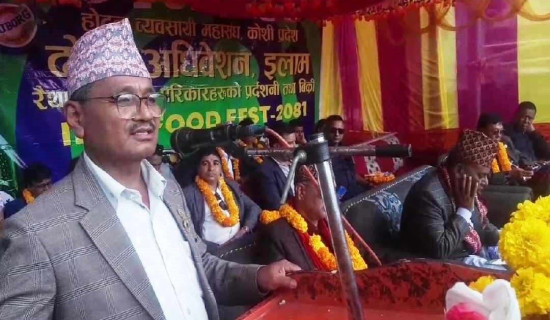- Sunday, 24 November 2024
Barbara Kingsolver bags Women’s Prize for Fiction
London, June 16: American novelist Barbara Kingsolver won the prestigious Women’s Prize for Fiction Wednesday with “Demon Copperhead,” the Dickens-inspired tale of a boy’s struggle against the odds in a corner of America scarred by opioid addiction. Kingsolver’s Appalachian coming-of-age tale was announced as the winner of the 30,000 pounds ($38,000) award at a ceremony in London.
Kingsolver, 68, also won the 2023 Pulitzer Prize for fiction for the novel, which transplants Charles Dickens’ “David Copperfield” to modern-day southwest Virginia, where the author lives. It was a second victory for Kingsolver, who previously won the Women’s Prize in 2010 for “The Lacuna.”
“Lightning strikes twice,” she said as she accepted the award. Kingsolver said she wrote the book to tell stories from a part of the United States — the mountainous Appalachia region — that is often overlooked or regarded as “just a joke.”
“We’re the last demographic in the U.S. that progressive people are allowed to laugh at,” Kingsolver told The Associated Press. “And we’re mad about it.”
Kingsolver has long woven social issues into her novels, which include “The Bean Trees” and “The Poisonwood Bible,” and helped establish the PEN/Bellwether Prize for Socially Engaged Fiction. Oprah Winfrey chose “Demon Copperhead” for her book club last year.
Journalist Louise Minchin, who chaired the Women’s Prize judging panel, said the winning novel was “a towering, deeply powerful and significant book.”
“’Demon Copperhead’ tackles universal themes – from addiction and poverty, to family, love, and the power of friendship and art,” Minchin said. “It packs a triumphant emotional punch, and it is a novel that will withstand the test of time.” Kingsolver said the book came from a desire “to tell the story of this place where I live and what has been done to it.”
“Appalachia has been so particularly exploited, almost treated as an internal colony,” she said, calling the opioid epidemic “one more turn in this exploitation trade.” “It’s a hard story to tell. And I really spent years thinking that it was totally impossible. And then it dawned on me that that’s just what Charles Dickens did. Why not tell his story, in my voice, in my place?”
Kingsolver said she didn’t think the great novelist, who chronicled the extremes of poverty and wealth in Victorian Britain, would mind her borrowing his plot.
“I love his anger, and I felt him saying, ‘Do this,’” she said. Kingsolver beat five other Women’s Prize finalists, including Maggie O’Farrell’s Italian Renaissance tale “The Marriage Portrait” and Laline Paull’s dolphin drama “Pod.” (AP)

















